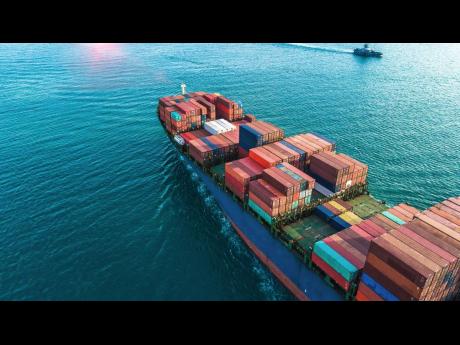The shipping industry’s role in global trade
THE SHIPPING industry is a critical component of global trade, facilitating the movement of goods and commodities around the world. Without shipping, international trade as we know it today would not be possible. In this article, we’ll take a closer look at the role of the shipping industry in global trade, its impact on the economy, and the challenges and opportunities it presents.
Shipping is the backbone of global trade, transporting goods and commodities from one country to another. According to the International Chamber of Shipping, more than 90 per cent of world trade is carried by the shipping industry. Ships transport a wide range of products, including raw materials, manufactured goods, and consumer goods.
The shipping industry is also a key enabler of global trade, providing the infrastructure and logistics support needed to move goods efficiently and safely. This includes not only the ships themselves, but also ports, terminals, and other related services.
The shipping industry plays a significant role in the global economy, driving trade and commerce and creating jobs and opportunities. According to the United Nations Conference on Trade and Development, maritime transport accounts for around 80 per cent of global trade by volume and over 70 per cent by value. The industry also directly supports over 1.5 million jobs worldwide.
In addition to job creation and economic growth, shipping also has a positive impact on the standard of living around the world. By facilitating the movement of goods and commodities, shipping helps to ensure that people have access to the products and resources they need to live and thrive.
Despite its critical role in global trade, the shipping industry faces several challenges and opportunities. One of the main challenges is the impact of global economic conditions on shipping demand and pricing. Economic downturns can result in decreased demand for goods and lower shipping volumes, leading to reduced revenues for shipping companies. This was perhaps most evident during the coronavirus pandemic which saw global demand shrink, reducing the need for many container ships, which in turn led to shortages, port congestions and elevated freight rates.
Another challenge facing the shipping industry is the need to balance growth and development with environmental sustainability. Shipping can have a significant impact on the environment, including air and water pollution and greenhouse gas emissions. To address these concerns, the industry has implemented several initiatives aimed at reducing its environmental impact, including the use of cleaner fuels, energy-efficient technologies, and waste-reduction programmes.
Despite these challenges, the shipping industry also presents several opportunities for growth and development. With the continued growth of global trade, there is significant potential for increased demand for shipping services. The industry also provides opportunities for innovation and technological advancements, such as the development of autonomous ships and the use of digital technologies to improve logistics and supply chain management.
The shipping industry plays a critical role in global trade, facilitating the movement of goods and commodities around the world. While it faces several challenges, including economic volatility and environmental sustainability concerns, the industry also presents several opportunities for growth and development. By continuing to invest in infrastructure, innovation, and sustainability, the shipping industry can remain a key enabler of global trade and continue to drive economic growth and development for years to come.

